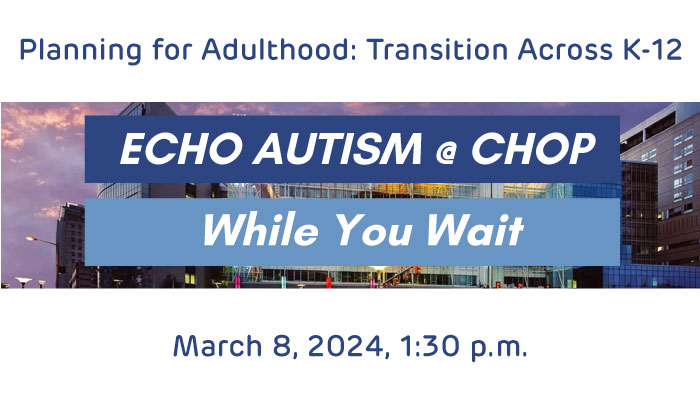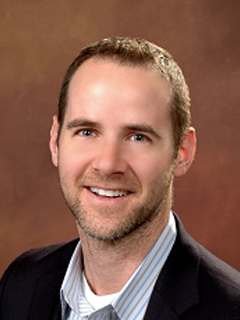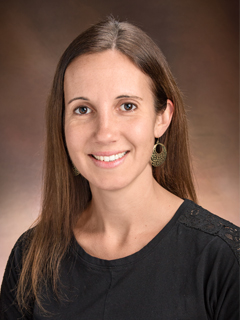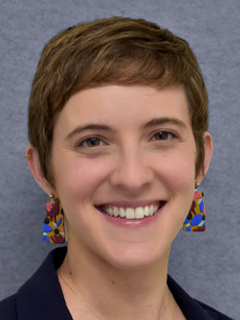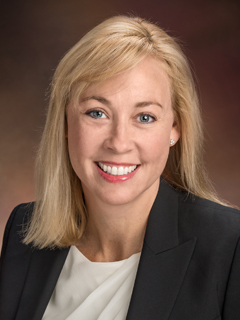HOW CAN WE HELP YOU? Call 1-800-TRY-CHOP
CAR Programs
PASSAGE Program
The PASSAGE Program focuses on the transition to adulthood for autistic teens and young adults, ages 14-25. The transition to adulthood is a time when many youth exercise increased levels of independence and personal choice. This period is also marked by the phasing out of supports that autistic people and their families have come to rely on through their schools and child-focused providers for mental and physical health. PASSAGE Program aims to support and better empower young people to achieve their goals and attain fulfilling levels of independence through rigorous research, field-leading clinical care, and accessible trainings and resources for autistic young people, their families, and care providers. The program's overarching goal is to improve the quality of life of autistic adults and their families.
PASSAGE stands for Partnership with Autistics for Successfully Supporting Adult Goals and Experiences. PASSAGE Program is an initiative within the Center for Autism Research at CHOP and works collaboratively with other CHOP programs, including the Department of Child and Adolescent Psychiatry and Behavioral Sciences, the Division of Developmental and Behavioral Pediatrics, the Division of Neurology, the Adult Care and Transition Team, and Career Path, and with local community and government organizations.
PASSAGE Program's mission is to develop and implement the knowledge, resources, and supports that assist autistic teenagers in making a successful transition to adulthood.
A successful transition to adulthood invests in teens’ functional skills for independence as well as their sense of well-being. Success will look different for each teen and family.
PASSAGE Program takes a multidisciplinary approach to supporting the transition to adulthood and improving the quality of life of autistic emerging adults. The program's research, clinical care, and training and resources focus on:
- What youth do: targeting activities such as post-secondary education, employment, and activities people engage in during the day
- How youth live: targeting activities such as self-care, domestic skills, and community skills
- Who youth spend time with: targeting topics such as community engagement and desired friendships and romantic relationships
- How youth feel: targeting mental and physical health
The program's work is done in consultation with autistic adults, their parents, and others in the autism community. No one understands the challenges of autistic transition better than those who are living it. The PASSAGE Program team has formed a constituent advisory board who is charged with helping us set our priorities for the first years of our program. Feedback based on firsthand experiences is critically important to ensure we stay focused on what is most relevant to autistic teens and their families.
The goal of research conducted within PASSAGE is to generate knowledge that will have immediate and tangible benefits to improve transition outcomes for autistic youth and their families. The research is centered on topics that are of high importance to autistic self-advocates, their families, and clinicians charged with supporting autistic youth in their transition. Current research projects include:
Daily Living Skills Research
The PASSAGE Program team is developing a new assessment tool for clinicians to evaluate readiness for living independently. A second project will evaluate the role of executive function and self-determination skills in the development of daily living skills as teens finish high school and start the next phase of life. This second project will then see how daily living skills impact teens perceptions of their quality of life.
Quality of Life Research
The team is developing a new tool to accurately measure quality of life in autistic youth navigating the transition to adulthood. An extension of this research specifically tests the effectiveness of quality of life tools for people on the autism spectrum who also have intellectual disability and who are nonspeaking. Another project identifies what types of life factors (e.g., level of independence, mental health, social connections, etc.) have the strongest influence on quality of life.
Transportation Research
The team is helping autistic teens and their parents have the information needed to decide whether driving is the right transportation choice for them, as well as best practices for teaching driving and other forms of independent transportation (e.g., navigating public transportation).
TUNE-In
TUNE-In (Training to Understand and Navigate Emotions and Intentions) is testing the efficacy of a cognitive behavioral treatment to support social functioning in older adolescents and adults with autism.
PASSAGE Program's clinical care model focuses on working with families to help set and work towards individualized goals for transitioning to adulthood. Current services include evaluations, clinical consultation, transition goal planning, and solution focused therapy. Our next step will be to offer in-house intervention programs that will complement our current assessment services and align with our ongoing research.
Diagnostic and Functional Living Assessments
Diagnostic and functional living assessments are provided by experienced psychologists for individuals ages 14-25. These evaluations serve multiple purposes, including gaining access to adult support services. Evaluations are tailored to individual needs and prioritize identifying areas of strength as well as areas for improvement. Assessments may include full or brief IQ testing, diagnostic testing for autism and other neurodevelopmental or psychiatric conditions, and adaptive testing.
Individualized Consultation Sessions
Individualized consultation sessions are available to patients who have had an evaluation through our clinic or are referred from providers or research centers at CHOP. A social worker will help to implement a transition plan for accessing community programs and supports. These sessions are highly personalized and specific to each family’s unique set of goals. Goals might include obtaining Medicaid waivers, identifying summer residential programs to practice independent living skills, identifying which academic supports are needed at college, advocating for work accommodations, and transitioning to adult medical and mental health providers. Services are devised to complement existing community programs and will involve coordination with public service providers throughout the region.
The PASSAGE Clinic is located in the Buerger Center. To schedule an intake for the program and for questions about insurance coverage for services, please email PASSAGEprogram@chop.edu.
PASSAGE's education arm is focused on providing relevant resources to the community through trainings and programming for autistic youth, their families, and the professionals who work with them.
CAR's Next Steps Series
CAR's Next Steps series offers a Next Steps into Adulthood workshop for individuals with autism, their families, and support professionals. Individuals with autism and those who support them face decisions and logistical planning that affect every aspect of life: healthcare, domestic life, finances, relationships, education, and employment or alternative roles in the community. This workshop explores these topics in facilitated small groups, including one exclusively for autistic self-advocates.
CAR Autism Roadmap™
The CAR Autism Roadmap™ has informative articles and a resource directory with topics covering the lifespan. Plans are underway to build a Road to Adulthood within this resource to facilitate access to adult topics.
Training for Professionals
Training for professionals is necessary to ensure there are adult providers who are capable and interested in working with autistic adults. PASSAGE Program is working to expand professional expertise within a variety of disciplines, including providing training for psychiatry fellows and offering a rotation for autism psychology interns.
Benjamin (Ben) Yerys, PhD
Benjamin (Ben) Yerys, PhD is an Associate Professor of Psychology in the Department of Psychiatry at the University of Pennsylvania and the Director of the PASSAGE Program at at the Center for Autism Research (CAR) at The Children’s Hospital of Philadelphia (CHOP).
In 2009, Dr. Yerys joined the faculty of Children’s National Medical Center and George Washington University. During his time at Children's National, he established a research program examining the attention and executive function challenges faced by children with neurodevelopmental conditions. In 2011, he joined the Center for Autism Research at CHOP where he now directs the Clinical and Translational Core for the CHOP-Penn Intellectual and Developmental Disabilities Research Center and the Data and Statistical Core at CAR. During his time at CAR, he expanded his research to illuminate how attention and executive function challenges impact daily functioning and quality of life for autistic youth and adults. Dr. Yerys’ research has been funded by the NIH since 2010, and he has published more than 90 scientific papers and reviews. He has also mentored or co-mentored two postdoctoral fellows and two graduate students who are now in or moving into faculty positions. His research into understanding daily functioning challenges faced by autistic people led him to initiate the PASSAGE Program at CAR.
Susannah Reimer, LCSW
Susannah Reimer, LCSW is the Community Education Program Manager for CAR and provides supports for the clinicians and families that are involved with the center, as well as the larger autism community. She is also the Social Work Discipline Director for the Leadership Education in Neurodevelopmental Disabilities (LEND) fellowship program at CHOP and serves as a Hub Team member for the CHOP ECHO Autism teleconsultation clinics. Prior to coming to CHOP, Reimer spent most of her professional career working within educational settings, supporting students with autism and other needs. She was a clinical social worker for the Springfield School District and the Silver Springs - Martin Luther School, which is a PA Approved Private School. Reimer was also an autism support service coordinator for Elwyn early intervention services in Philadelphia. She earned her bachelor's degree from Penn State University and her Master's in Social Work from the University of Pennsylvania.
In her work at CAR, Reimer manages the CAR Autism Roadmap™ online resource website and provider directory. She networks with community-based support systems and providers as leader of the CAR outreach team, to maintain accurate and evidence-based information for families and professionals and to disseminate resources. Reimer also oversees the Next Steps workshop series, including Next Steps into Adulthood, which specifically provides information to support autistic individuals and their families in preparing for the future. As Co-Director of PASSAGE Program, Reimer provides clinical consultation and follow-up for the individuals who are seen in the PASSAGE Clinic, as well as leading the expansion of transition-focused resources and education.
Ellie Kaplan-Kahn, PhD
Ellie Kaplan-Kahn, PhD is a licensed psychologist and postdoctoral fellow at CAR. Dr. Kaplan-Kahn earned her doctorate in School Psychology at Syracuse University. Her dissertation was funded by the National Association of School Psychologists and examined the ways in which differences in lower-level perceptual processing in autism impacts subsequent cognitive mechanisms. Prior to graduate school, Dr. Kaplan-Kahn worked in research labs at Johns Hopkins University, University of California Berkeley, and Harvard University. She completed her APA-accredited clinical psychology internship at CHOP.
As a postdoc at CAR, Dr. Kaplan-Kahn has served in a clinical leadership role on multiple studies, including clinical evaluations and supervising trainees. She is the inaugural postdoc for the PASSAGE Program and is currently leading the program's Priority Setting Meetings. The Priority Setting Meetings bring together a diverse cohort of advocates, including autistic adults, caregivers, researchers, clinicians, and autism community organizations in Philadelphia, to collaboratively set the priorities and direction of CAR's transition to adulthood program with our communities. Dr. Kaplan-Kahn also conducts clinical evaluations for CHOP patients through the PASSAGE Clinic. Dr. Kaplan-Kahn's research focuses on measuring and improving quality of life outcomes among transition-age autistic youth and young adults. Her line of research seeks to identify changeable factors that are the most influential in improving autistic quality of life. These factors include individual influences, such as mental health, as well as social and environmental influences, such as different types of transition support systems. In pursing these research questions, Dr. Kaplan-Kahn is dedicated to facilitating increased autistic community involvement in autism research, including collaborating with autistic researchers and self-advocates in all stages of research.
Debra L. Dunn, JD
Debra L. Dunn, JD is a parent who has been immersed in the autism community since 2000, when her son, now in his twenties, was diagnosed on the autism spectrum. Dunn currently works as a consultant to CAR on a variety of projects, including the PASSAGE Program, for which she is helping to develop a strategic vision and plan.
Dunn was one of the first employees hired at CAR in 2008, serving as Director of Outreach and Study Recruitment until 2013. She has worked on many transition to adulthood initiatives at CAR, including organizing and moderating Transition to College for Students with ASD, a panel discussion with disability services specialists and autistic college students, moderating Pathways to Competitive Employment for Youth and Young Adults on the Autism Spectrum, a panel discussion with employment training specialists and young adults, and developing content for CAR's Next Steps into Adulthood program. Dunn was also the project manager for the CAR Autism Roadmap™ and personally wrote over 175 articles, including: Are Four Years of High School Enough? When to Stay Longer, Ending the School Years: Your Child’s Summary of Performance, College or Employment: What’s Right for Me?, and Education after High School: What are the Options.
Dunn recently consulted with the Penn Center for Mental Health at the University of Pennsylvania in their efforts to establish an inclusive lab preschool for children with autism – The Ability Academy. She served as a board member of the Autism Society of America Greater Philadelphia Chapter and was a founding board member of ASCEND Group (a local autism advocacy organization). She was a member of the Right to Education Task Force, where she led a team assisting the Pennsylvania Department of Education in monitoring special education programs in Delaware County, PA. Dunn contributed six articles related to education and advocacy to The Encyclopedia of Autism Spectrum Disorders (Editor-in-chief, Fred R. Volkmar) and was a parent reviewer for the Autism Toolkit from the American Academy of Pediatrics Council of Children with Disabilities.
Dunn is a graduate of Duke University and The University of North Carolina School of Law. Prior to her work in the autism community, she was an attorney for a litigation firm in Philadelphia. She continues to use her experience as an attorney to help others become effective advocates. Over the last 20+ years, she has presented at hundreds of educational events and has cultivated relationships with autism professionals and families in the Greater Philadelphia region.
